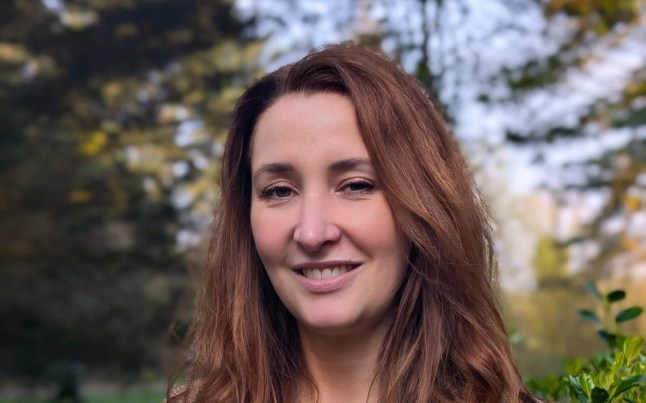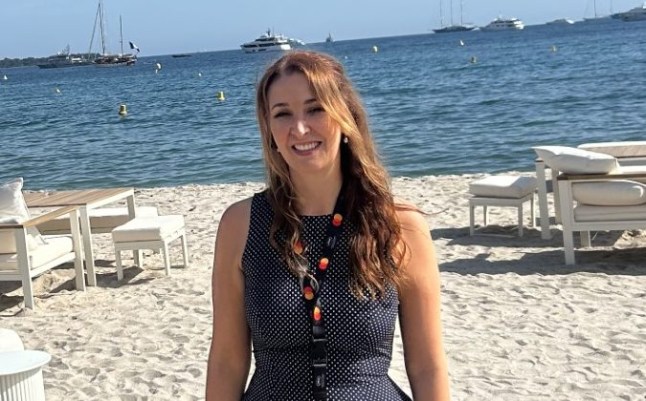
I was alone and lying in a hospital bed when a consultant came into the room.
It was 2010 and I was 19. I had been experiencing bloody diarrhoea for three months.
That’s when I was told something I’ll never forget: ‘Prepare for the worst because your symptoms could be a sign of bowel cancer.’
While I understand they may have been trying to prepare me, this did little to comfort me. Instead, I immediately burst into tears.
I was terrified and didn’t want to die.
This all started five months earlier when I contracted food poisoning from uncooked chicken at a chain restaurant while in my final semester of first-year at university.
I’d experienced vomiting and diarrhoea ever since, which meant I’d spent almost every waking minute close to a toilet – going up to eight to 10 times a day. I even had to stop going out with friends and couldn’t drink alcohol as it made my symptoms worse.

Eventually, I went to see my GP who then referred me to a gastroenterologist for tests.
Unfortunately, while awaiting my hospital referral, I caught a virus. I couldn’t keep any food down, I was rapidly losing weight from bloody diarrhoea, I had a high temperature, and generally felt rubbish.
Yet all I was given to fight it off was some anti-sickness tablets and the advice to ‘rest up’.
After two weeks of this, I realised I wasn’t getting any better. So my parents took me to A&E, where I was admitted.
There, doctors administered fluids and steroids.

The next week in the hospital was an incredibly apprehensive time awaiting diagnosis.
That’s when the comment from one of the consultants about potentially having bowel cancer came about. I was scared.
Meanwhile, I was kept on a high dose of steroids, which thankfully helped my symptoms slowly start to ease. Then I had a colonoscopy, which is when I was finally given my official diagnosis: Ulcerative Colitis.
This long-term health condition causes the lower bowel to become swollen and ulcerated, which causes a variety of symptoms, including diarrhoea, stomach pain, and extreme fatigue – all of which I had.
Essentially, food poisoning triggered my first ulcerative colitis flare-up, which then caused my immune system to attack itself, which also explained why I’d struggled to fight off that virus.

I was in the hospital for over a week while doctors got my condition under control. But even when I left the hospital, I was incredibly weak.
Not only had I lost so much weight due to the flare-up, but it was also really mentally draining trying to adjust to life with a lifelong, incurable illness.
Thankfully, over the next year, I started to gain my strength back. I turned to the charity Crohns & Colitis UK, who provided a ‘can’t wait’ card – which makes it easier to ask to use toilets in public places without having to give a long explanation – and a radar key for me to use disabled bathrooms.
I also joined Facebook groups like Colitis UK – being able to speak to others with the same condition as me has really helped me mentally overcome my diagnosis and feel less alone.

I always explain that there’s no one size fits all solution with this condition. Some treatments work for some, and not for others, that’s sadly just the way it is with autoimmune conditions.
I’m now on preventative medication, which has kept things under control over the last few years. I take it every day and will be on it for life to keep my immune system from attacking itself, but I definitely consider myself lucky.
Of course, there are still good days and bad days.
When I started working in the TV industry in 2013, I struggled with flare-ups due to the long hours, stress, and general lack of self-care.
Being disabled and from a northern working-class background, the odds were against me, but somehow, I made it and maintained a freelance career for almost a decade.
Disabled people in the UK television industry
According to the Creative Diversity Network, contributions by disabled people both off-screen and on-screen make up around 8%, which remains lower than the national population (around 17%).
In fact, at the current rate of progress, it will take until 2041 for disabled people to be properly represented in the UK television industry.
The industry, however, eventually took its toll on me, and I made the initial decision to leave for my own mental and physical health in 2021.
Now, I am working with Beacon Films, a production company in the North East of England that supports the talents of disabled and neurodivergent filmmakers.
I am part of Inclusive Lens, an industry inclusion group that is looking to add positive change to the TV industry for those who identify as disabled.

There is a real misunderstanding of what it means to be disabled. That’s why it’s important to embrace conversations to ultimately change these misconceptions.
For me, taking preventative medication, changing career, exercising, self-advocacy, and working with a great IBD team and a very supportive GP have reduced the frequency of flare-ups.
Today, 15 years on from my own diagnosis, I have managed to remain in remission for the last few years – that’s something that never seemed possible when the consultant told me to prepare for the worst.
Yes, brain fog, anemia, and joint pain (even when not during my flare-ups) are still part of having this condition, but the strength and resilience I have found in myself from having this disease has been incredible.
Being diagnosed with an autoimmune disease will change you, it will teach you patience, it will test you to breaking point. But despite it all, it doesn’t define who you are.
Do you have a story you’d like to share? Get in touch by emailing James.Besanvalle@metro.co.uk.
Share your views in the comments below.
Write Reviews
Leave a Comment
No Comments & Reviews